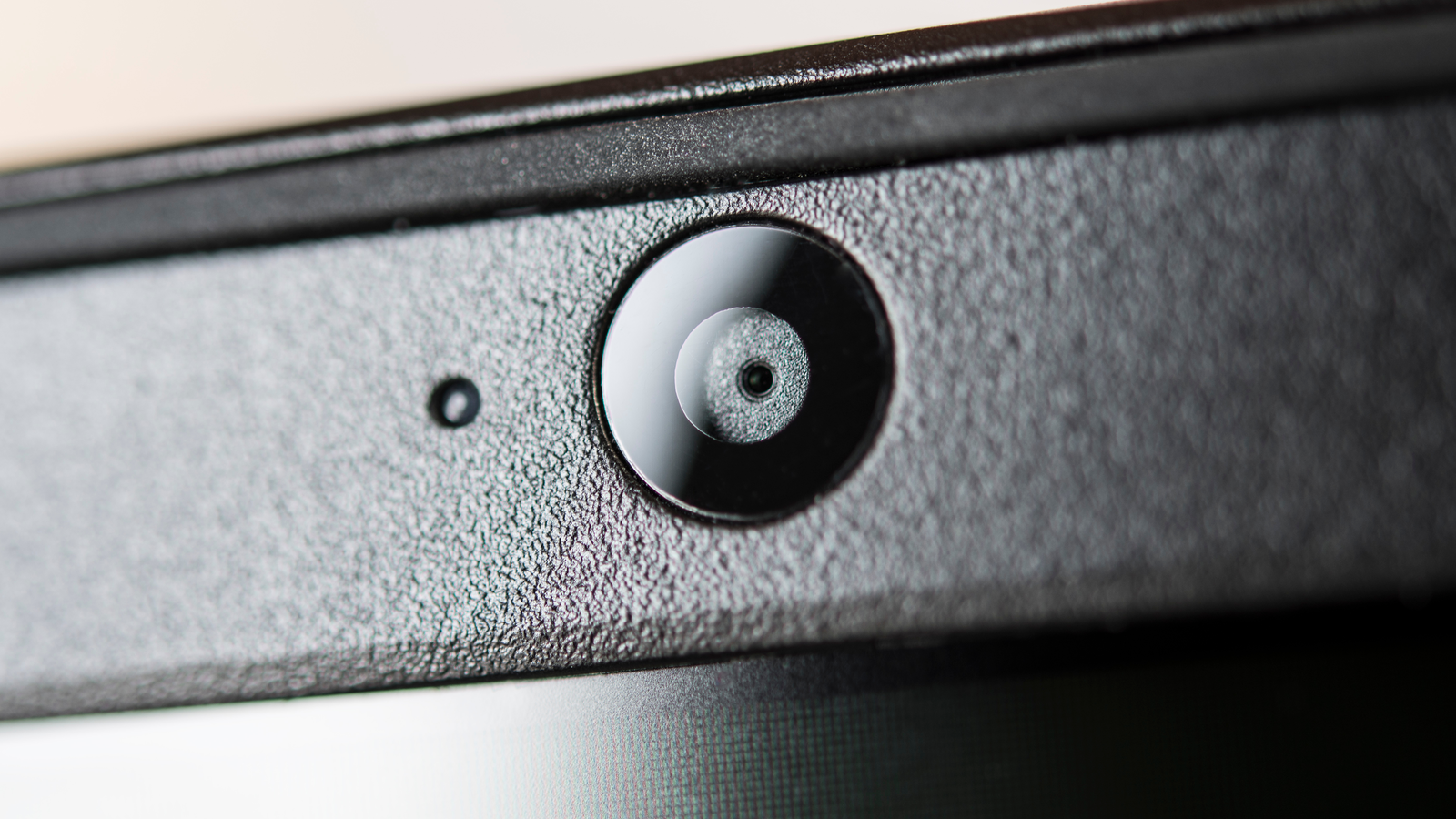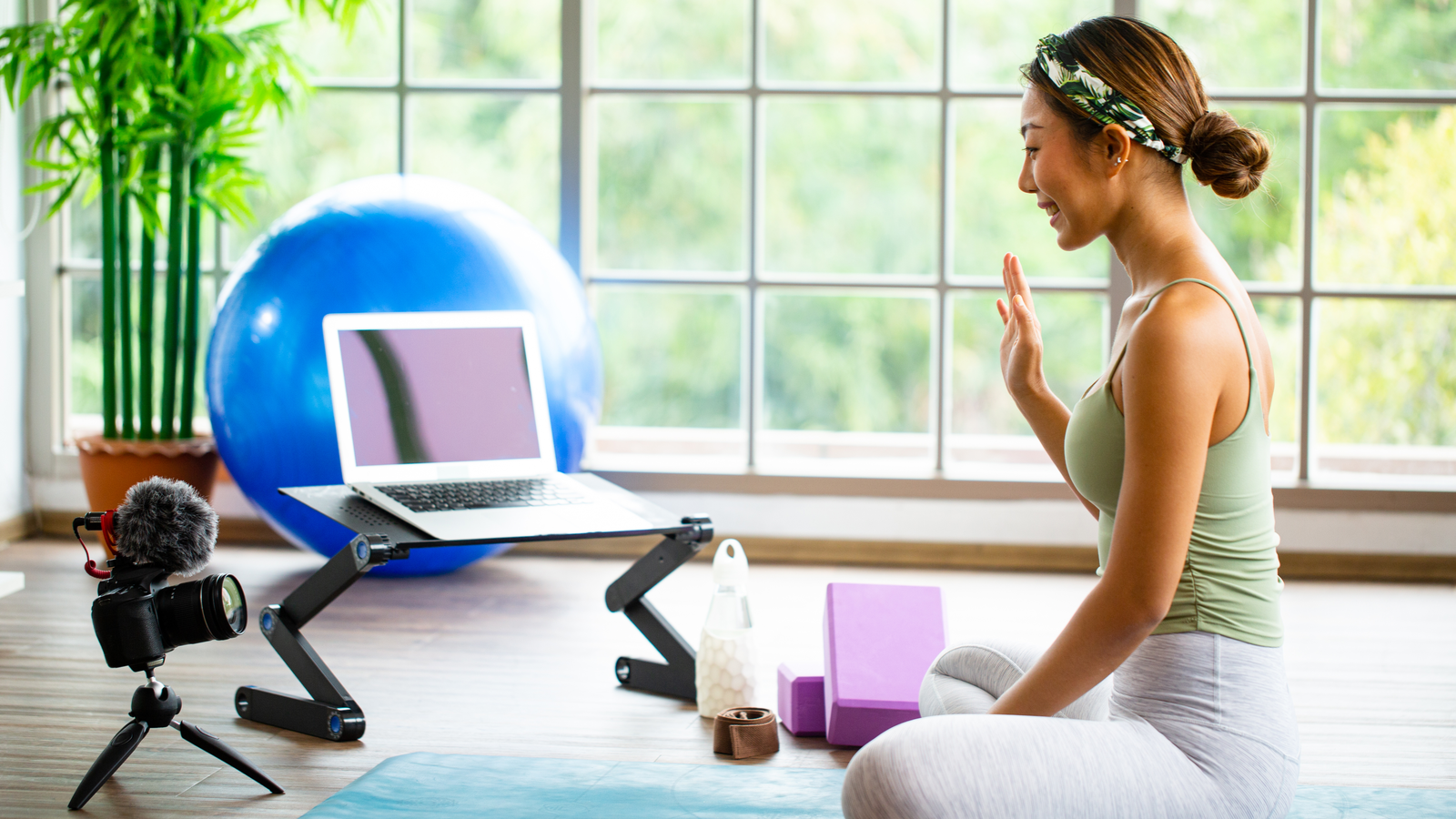Read update
- Verified links and content up to date.
Quick Links
With the pandemic keeping nearly everyone at home this past year, many of us have relied on video calls to stay in touch with family, friends, and coworkers. And while the camera on your laptop gets the job done, you're probably doing yourself (and everyone else) a disservice by not using a better webcam.
Many laptops already have cameras built into them, and they do technically work for video calls and the like, which is why many people haven't bothered paying for a dedicated camera. However, if you've been on a video call, you've inevitably talked with a few folks with a low-resolution camera and lamented the experience afterward. So, it's time you ask yourself: Is your laptop webcam really good enough?
UPDATE: 3/2/22
Verified links and content up to date.
Why Aren't Laptop Cameras Better?
The main limitation that laptop cameras have to deal with is a lack of space. Their screens are super thin (and getting thinner and less bezeled every year), which doesn't leave much room for the bulkier and more powerful hardware found in quality webcams or any other camera for that matter. Even smartphones are thicker than laptop screens.
As such, the average laptop's camera rings in at an underwhelming 720p. Manufacturers eagerly pack 4K screens and powerful hardware into these machines, but always seem to overlook cameras (even the brand new M1 iMacs, which aren't even laptops, only boast a wimpy 1080p webcam).
To actually be good, these cameras need to have enough room for the two things central to capture a quality image: a decent-sized sensor and lens. Over the years, manufacturers have tried a variety of tactics to remedy this situation, like bolstering their underwhelming cameras with gimmicky software (that ultimately didn't help) or even relocating webcams in keycaps or elsewhere on the body of the laptop, which resulted in the dreaded up-the-nose view.
While this wasn't a big deal in, say, 2019 (or any time before that), things changed in 2020. With the rise of the COVID-19 pandemic and much of the workforce shifting to a work-from-home setup, webcams suddenly became an everyday necessity. Seemingly out of nowhere, everyone was clamoring to buy any webcam they could get their hands on in order to stay in touch with family, friends, and coworkers.
Everyone was pretty understanding of the situation at first, with webcams quickly going out of stock everywhere due to the unforeseen spike in demand. But as stay-at-home mandates and remote work situations were extended---and as webcam stock slowly returned to retail stores---it became pretty clear that good webcams were every bit as important as a good internet connection. Nobody wants to spend an hour on a video call with someone whose inadequate low-resolution laptop camera is struggling to provide a decent picture.
Now, hopefully, it's clear to laptop manufacturers that priorities have changed and that quality webcams need to carry more weight and consideration in future laptop designs. New laptops, even base models, would benefit from having a webcam with at least a 12MP and 1080p resolution sensor.
When Is Your Laptop's Camera Enough?
As we hinted at earlier in this article, laptop cameras are technically functional and work in a pinch (hey, they're better than nothing). However, that's far from a glowing commendation, and frankly, in 2021, the average laptop's camera no longer makes the cut. There's no good reason, especially after this past year, not to have a quality webcam if you're regularly making video calls or streaming.
Having a better camera option for your computer makes you look better to anyone you're on a call with or who's watching your livestream. A better camera or webcam will ensure you look bright and crisp, not pixelated and dark. Most quality webcams even offer a wider field of view, which is perfect if you need to squeeze your entire family into the shot for a video call. Good webcams also offer better microphones, though if you really want to up your audio game, you should use a dedicated USB microphone.
If you video chat regularly, especially in a professional capacity, then a good webcam is paramount. If you only use video calls sporadically, then your laptop camera might be good enough, but an affordable webcam might still be worth picking up if you're looking for a better overall experience.
What Are the Alternatives?
Given the many shortcomings built-in laptop cameras have, you're probably wondering what alternatives are available to you. The obvious pick is a dedicated webcam you can plug into your laptop. Webcams are designed for just that purpose and are not only going to be the easiest alternative to set up and use, they'll also make you look good with their higher-quality components and resolutions.
Of course, you can get creative and use other devices as well, like the camera in your smartphone or tablet. Where most laptop cameras are limited to 5MP and a less-than-crisp 720p resolution, newer smartphones and tablets are much better. Typically, you can expect front-facing cameras on these devices to range anywhere from 12-24MP that can handle, on average, 1080p video. And many higher-end devices can even do better than that.
There's also the option to use your actual camera, like a DSLR. As long as it can plug into your laptop and your computer can access it, a camera is a stellar alternative. Over the past year, most of the major camera manufacturers have released drivers and software to make many of their cameras more compatible for just this purpose, so yours could work just fine---just do a little research on whether this is an option for your camera's particular make and model. And if you're feeling really creative, there are other options even beyond these.
How Much Do Webcams Cost?
Generally speaking, standalone webcams can cost anywhere from about $25 up to $200, but we found that the sweet spot is around $70-$120. It really just comes down to your budget and what specific features you're looking for.
Just need something basic that offers high-definition recording and skips the frills? There are decent picks on the lower end of that range. Want a 4K image, stereo microphones, a wide field of view, and high-quality components? You'll likely end up spending closer to $170.
Ready to Get a New Webcam?
Here are the facts: Laptop cameras do the bare minimum for video calls and streaming video. And while that might have been acceptable at some point in the past, it just doesn't cut it anymore in a time when video calls are how we're all staying connected at work and with friends and family on the regular.
A dedicated webcam is absolutely worth upgrading to, as they are made of better materials, have higher resolution sensors, work better in low-light scenarios, and even have better microphones than built-in laptop cameras. You'll look and sound better in calls, recordings, and streams. What's not to like about that?
Want to take the leap and upgrade your video call game? Check out our best webcam picks:




